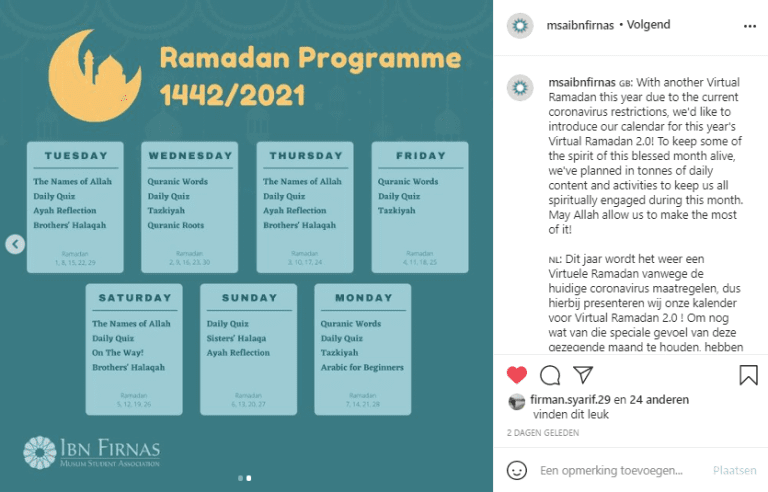The start of Ramadan this year falls at the same time as the examination week. Is that a problem or not? Three Islamic TU students talk about their experiences.
(Photo: Abdullah Arif /Unsplash)
They are finding that fasting during the examination period is feasible. In fact, first-year master student of Civil Engineering and Geosciences Arish and first-year bachelor student of Aerospace Engineering Muneeb claim they are more productive. “I am not spending time eating, so I can concentrate much better on studying,” said Arish. Muneeb added, “I suffer fewer distractions during Ramadan. Normally, I keep walking to the fridge while studying to see what there is available. Or I prepare a snack, which then makes me feel sleepy.”

For all three students, Ramadan is a period of contemplation. “During Ramadan I try to deepen my faith, pray more and read more from the Koran. I try to be a better version of myself and feel grateful for everything I have,” said Yasir, who is in the third year of his bachelor of Applied Physics. Arish explained, “Ramadan is more than not eating and drinking. It is also about controlling your behaviour more.” During Ramadan Muneeb tries to empathise with people who are starving. “In comparison with them, my life is easy. I can eat again after 16 hours.”
 Muneeb started the iftar wednesday with fruit and dates (Photo: Muneeb Syed)
Muneeb started the iftar wednesday with fruit and dates (Photo: Muneeb Syed)Lower results
Research conducted by the Vrije Universiteit in Amsterdam revealed that students who participate in Ramadan have lower examination results. Are they worried about that? Not really, said Muneeb. “Of course, fasting can affect my examination result, but Ramadan is part of my life as a Muslim. Showing how much my faith means to me is more important than getting a higher score.” For Yasir, this is not the first time that his examinations coincided with Ramadan. “At that time, I did not notice any negative effect on my results. By planning realistically, working hard and trusting in Allah, I think that it will turn out fine this time as well.”
In some European countries the universities make allowances for Muslim students during Ramadan. For example, the examinations in Belgium are held in the mornings. The examinations of Yasir, Muneeb and Arish are planned at reasonable times. Each of Yasir’s four examinations start at 13:30 and end at 16:30. “That’s just perfect, not too early and not too late.”
Muneeb’s only examination began at 9:00. Normally, he sleeps during Ramadan until 9:30. “So I had to cope with a bit less sleep when taking the examination, but that was easy to accommodate. In addition, I prefer examinations in the morning rather than the evening, for example, 21:00. That is the time to eat.” He joked, “But I don’t think anyone at TU Delft likes examinations in the evening.”
Tips from Muneeb and Yasir
- Muneeb: “Planning is important. Not only preparing well for your examination week, but deciding what food you want to make in the evenings and mornings. It takes me about an hour to cook, and I just don’t have that time at 3:30. So I make sure there is a supply of prepared meals in my fridge that only need to be heated up.”
- Yasir also pays attention to what he eats. “By eating a varied diet with plenty of fibre, while drinking enough water in the night, you get tired less easily and can concentrate better during the day.”
- Both Muneeb and Yasir try to pay close attention to their bodies during Ramadan. “If you notice that you are getting tired during the day, insert more breaks in your planning.” Muneeb: “And if you get really fatigued, then take a powernap. That will help more than trying to struggle on while feeling sleepy.”
Do you have a question or comment about this article?
a.m.debruijn@tudelft.nl


Comments are closed.